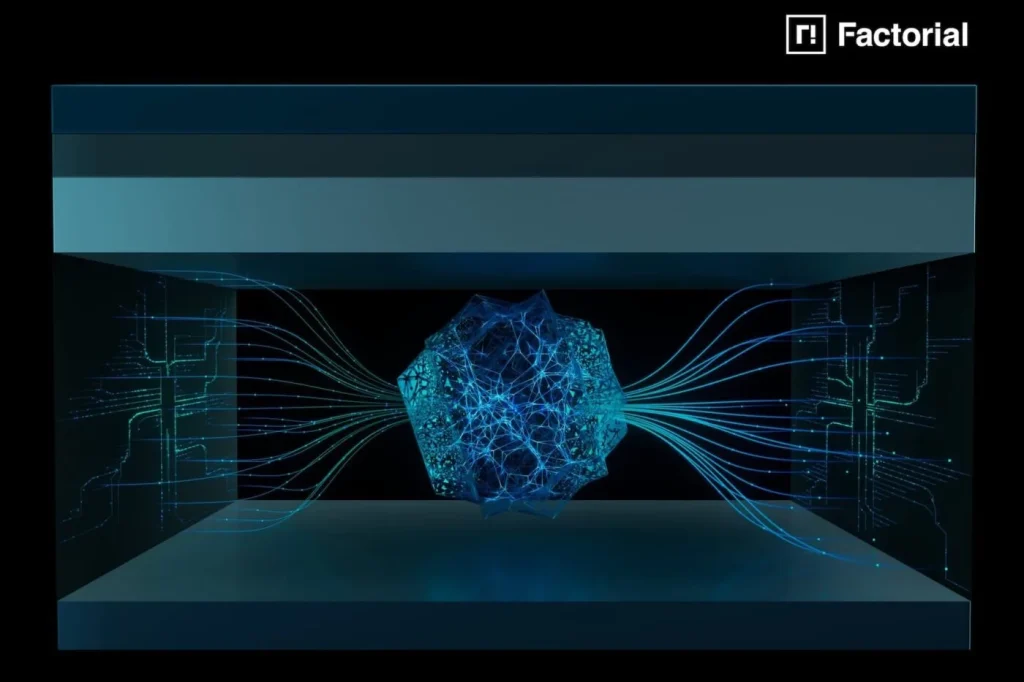Factorial, a US company specialising in the development of solid-state battery cells, aims to accelerate the development of next-generation batteries with an AI-supported simulation platform. The software, called ‘Gammatron’, is designed to improve the prediction, validation and optimisation of battery performance.
Factorial Energy, headquartered in Boston, specialises in solid-state batteries in which the liquid electrolyte is replaced by a solid one. The company counts Mercedes-Benz, Stellantis and Hyundai-Kia among its most important partners. The company’s vision is to give electric cars a range of around 1,000 kilometres with energy densities of up to 450 Wh/kg.
To accelerate research on solid-state batteries, Factorial has now developed Gammatron, an AI-powered digital twin platform for faster battery innovation from the lab to the road. Developed in-house to overcome R&D bottlenecks, the solution enables advanced life prediction, optimised charging protocols and smarter electrolyte discovery for different battery chemistries, according to the company.
Unlike traditional AI platforms that focus on system-level modelling, Gammatron combines electrochemistry, thermodynamics and laboratory data to simulate and optimise battery behaviour at both the material and cell system level.
“Validating a new cell design can take years, but with Gammatron, we’ve demonstrated that we can dramatically shorten that timeline—forecasting long-term performance from just two weeks of early testing, instead of the typical three to six months,” said Siyu Huang, CEO of Factorial. “By combining automation with data-driven insights, we’re accelerating development with greater speed and control.”
The platform offers three core functions: An AI-driven digital twin for battery cells can provide accurate predictions of cell health and accelerate the optimisation of fast charging. Furthermore, electrolyte formulation is accelerated through molecular modelling and machine learning. On top of this, physics-based modelling is used to simulate internal battery behaviour, including stress, heat and degradation, which cannot be directly observed during testing.
Gammatron has already been used in the joint development of Factorial and Stellantis, according to the company, and is said to have helped predict battery performance before full testing was completed – a critical factor in completing the validation programme ahead of schedule. In some cases, the protocol optimisation made possible with Gammatron has doubled the service life without changing the cell chemistry.
“Batteries are complex dynamic chemical systems. Gammatron™ combines machine learning with scientific feature engineering. Where most platforms hit a wall with shallow machine learning, Gammatron goes deeper and shows engineers which material and design changes will unlock longer life and higher performance,” said Raimund Koerver, VP of Business Development at Factorial. “It’s not just about predicting outcomes – it’s about enabling better ones.”
businesswire.com

